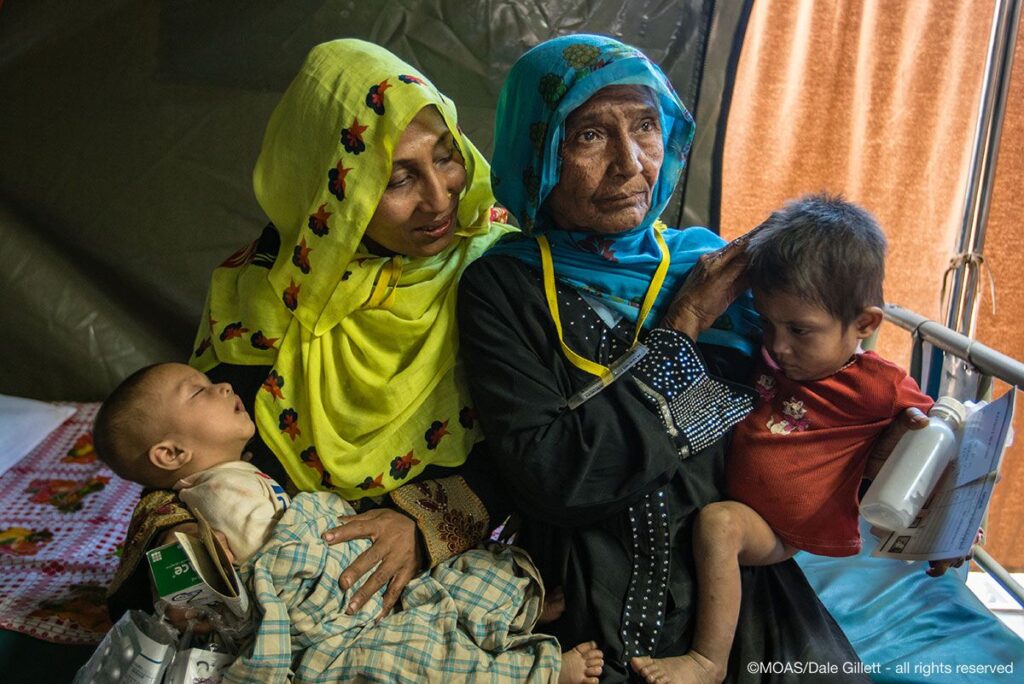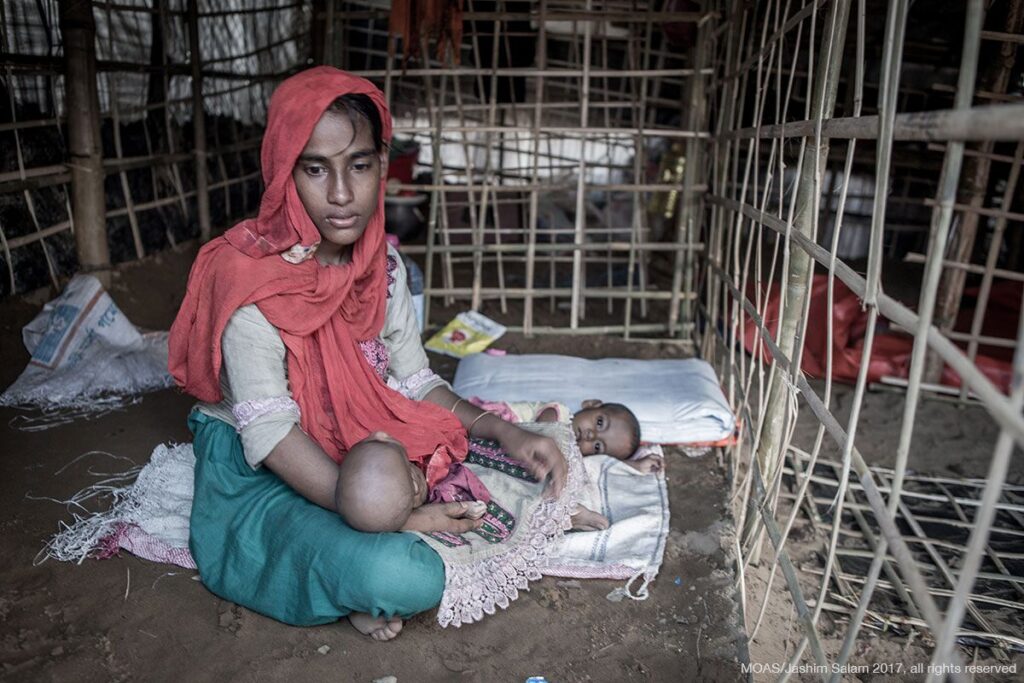The Global Day of Parents is observed on the 1st of June every year, to honour parents throughout the world. This Day provides an opportunity to appreciate all parents in all parts of the world, whilst paying special attention to all those parents who find themselves in challenging situations that make it difficult to raise their children and keep families together.
Refugee parents face unique challenges to parenthood. However, single parents, and in particular single women headed households, often have to face additional struggles. In Cox’s Bazar, Bangladesh, for Rohingya refugees, where women, after children, make up the majority of the refugee population, being a single refugee mother is extremely challenging. According to the UN High Commissioner for Refugees (UNHCR) indicators monitoring as of 31st March 2020, single parents are the highest percentage of people with specific needs within the refugee population of Bangladesh and almost all of them are women.
The situation for all Rohingya women within these refugee camps is very challenging. Every day they are at risk of gender-based violence (GBV) or other exploitation such as trafficking and forced marriage. With the recent outbreak of COVID–19, some of these issues have even been amplified, for example cases of domestic violence against women from extended family members has significantly increased, turning GBV into a shadow pandemic alongside COVID-19.
The Covid–19 outbreak also exposes the deficiencies in health services and measures necessary to fight the virus as within the refugee camps as practicing social distancing or good hygiene is virtually impossible, and access to healthcare facilities is often lacking. For women inside the refugee camps access to adequate menstrual hygiene is also limited as access and distribution of sanitary products is lacking meaning that the well-being and safety of women and adolescent girls is further worsened with the outbreak of the virus.
Single refugee mothers in Bangladesh, however, do not only face challenges to access healthcare and other basic services for them and their children. In a society where men are traditionally the breadwinners of the families, Rohingya single mothers find it difficult to raise their children in financially unstable positions They face a number of challenges, having to take on public roles that conflict with cultural and religious ideas about the place of women in society. Single mothers are often forced to assume the role of the traditional fathers and fulfil tasks that men would normally do, such as going out to collect basic goods, firewood, or water.
Many widows, whose husbands are missing or dead following persecution in Myanmar, also find themselves fulfilling the role of the men by supporting the economic and emotional well-being of the family. Whilst protecting their families within the context of an overcrowded refugee camp, there is also the need for women to find and access income-generating opportunities. However, for women inside refugee camps, these opportunities are often lacking. The lack of options available for Rohingya women makes it very hard for single mothers to support their children, in a context where access to childcare and education is also limited , and Rohingya girls, especially when they hit puberty, face major obstacles in gaining an education.
Furthermore, women also face great difficulties in terms of access to adequate sexual and reproductive healthcare, which, again, puts them in an increasingly vulnerable position. Rohingya women do not normally seek sexual and reproductive health services and, as a result, many births occur without the assistance of healthcare professionals, highlighting the need for essential reproductive services, along with maternal, child, and new-born health services.
Nonetheless, the recent mobilisation of Rohingya women for COVID-19 pandemic has highlighted the incredible strength of refugee women as many are now working with UN Women to mobilize their communities and raise awareness on COVID-19.
It is important not to forget the issues of people who find themselves in challenging situations that may prevent them from raising their children in safe environments. Single refugee mothers who face disproportionate challenges to parenthood therefore desperately need additional assistance to improve their conditions. Increasing opportunities for women and girls to earn an income and gain an education learn is essential to help protect them from abuse and exploitation whilst allowing them be able to independently provide a better future for their families.
If you are interested in the work of MOAS and our partners, please follow us on social media, sign up to our newsletter and share our content. You can also reach out to us any time via [email protected]. If you want to support our operations, please give what you can at www.moas.eu/donate.



